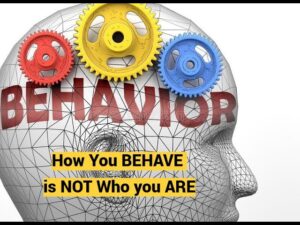Psychology
Great Reset: True Healing Only After Hitting Rock Bottom (with Vera Faria Leal)
Professor Sam Vaknin discusses the Israeli-Palestinian conflict, highlighting its historical, religious, and economic dimensions. He emphasizes the intractability of the conflict and the lack of compromise due to the intertwining of religious, nationalistic, and economic factors.
He also delves into the psychological underpinnings of the conflict, discussing victimhood, and the need for a collective crucifixion or apocalypse to bring about transformation.
He stresses the importance of philosophers, psychoanalysts, and psychologists in the negotiation process and advocates for a shift towards communitarianism as a potential solution.
How Narcissists, Psychopaths Shot Themselves in the Foot (Ecosystem, Predator-Prey, Victimhood)
The Professor discusses the evolution of narcissists and psychopaths in targeting victims and how they have adapted their strategies to the changing times.
He explains how the growing awareness of narcissistic abuse has made it more difficult for predators to find victims, leading them to transition from hunting individuals to targeting groups and reshaping society to create an environment conducive to their behavior.
This has resulted in a binary ecosystem where individuals are forced to choose between being predators or prey, leading to the rise of victimhood movements and paranoia. However, this has also created an imbalance between the number of predators and prey, as well as a situation where victims seek out abusers, ultimately backfiring on the narcissists and psychopaths.
Why You Buy Into Narcissist’s Simulated Existence
He discusses the nature of narcissists, likening them to computer programs or artificial intelligence.
He explains that the narcissist’s ability to mimic human behavior does not make them truly human, and they lack empathy and positive emotions. Sam describes how narcissists manipulate and deceive others by triggering internal processes, reorganizing their minds, and using attribution errors.
He attributes the narcissist’s behavior to early childhood abuse and trauma, suggesting that they are the product of their environment and genetic predisposition.
Narcissist Female Bosses Outbest Male Narcissist CEOs
In this lecture, He discusses the prevalence of this state in corporate leadership, particularly focusing on the performance of narcissistic female chief executive officers.
He highlights a study that suggests narcissistic female CEOs outperform their male counterparts and that their state is associated with improved company performance.
The study also suggests that female CEOs are able to suppress the dark side of such a state and leverage traits such as empathy and networking, leading to superior corporate outcomes. Additionally, the lecture touches on the impact of narcissistic tendencies of chief financial officers on corporate digital transformation, suggesting that the state in upper management may be a beneficial corporate asset.
Narcissist Stalks Your Dreams, Nightmares
The Professor discusses the concept of lucid dreaming and its application to the narcissist’s shared fantasy.
He explains how the narcissist manipulates and entrains the victim into the shared fantasy, triggering repressed memories and emotional release.
The lecture delves into the psychological impact of the shared fantasy, the role of dreams in processing trauma, and the brain’s response to threats and stress during sleep. he emphasizes the importance of paying attention to nightmares and dreams as they may provide insight and self-awareness to help individuals navigate the shared fantasy.
Mental Illness, Left and Right with Prof. Ed Dutton, Jolly Heretic
The Professor, an expert and diagnosed narcissist, discussed various aspects, including its nature, types, and prevalence in society.
He explained that this state is characterized by an absence of true self, replaced by a false self that acts as an imaginary friend or deity.
He also touched on the differences between overt and covert state, the concept of psychopathic narcissist, and the societal and cultural shifts that have led to an increase in narcissistic traits.
Additionally, he addressed the impact of social media on narcissism and the importance of addressing the conflict between men and women as a critical issue for society.
Privatized Empathy and Cowardly Public “Intellectuals”











